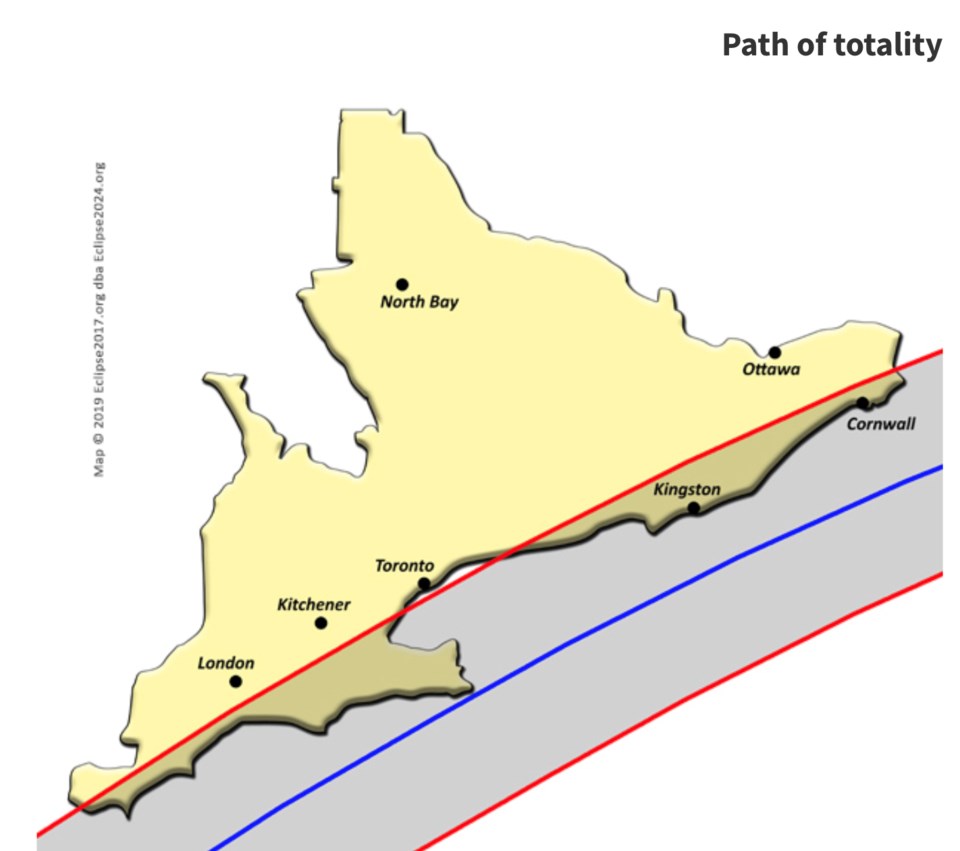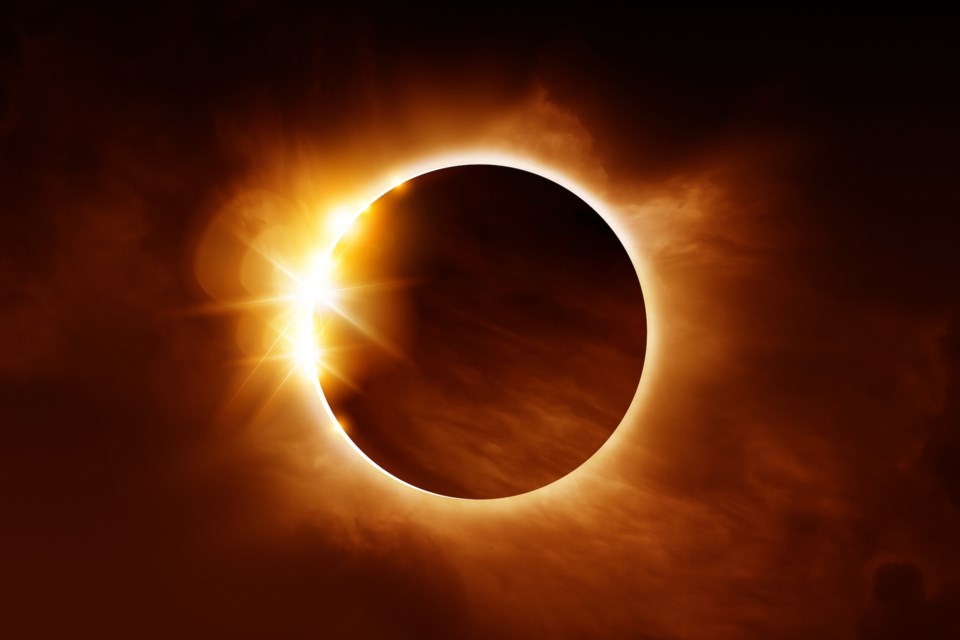On Monday, April 8, a once-in-a-lifetime total solar eclipse will cross over North America — including parts of southern Ontario — when the moon passes between the sun and the Earth.
Here in Sarnia-Lambton, residents will experience a partial solar eclipse, as we are located outside of what’s known as the ‘path of totality’ — the stretch where the moon slides between the sun and Earth and blocks the sun 100%.
So what does that mean for residents here?
We asked Pauline Barmby, Chair of the Department of Astronomy and Physics at Western University, to help explain what we can expect to see, Monday:
How will the solar eclipse pass over Sarnia compared to the rest of the province?
“The way that we see an eclipse depends on how the shadow of the moon is passing across the earth. So, the deepest part of the shadow is the part that experiences the total eclipse. Sarnia is not quite in that deepest part, but it’s in kind of the outer edges of the shadow.
So, what folks there will see is that the moon gets very close to covering the sun; it covers 98.4%, but it doesn’t completely cover the sun.”
How long will it last?
“The whole eclipse lasts two-and-a-half hours from when the moon hits one edge of the sun, to when it leaves the other edge of the sun. The period of maximum darkness is just a couple of minutes right in the middle of that time. So, for folks in Sarnia, that will be at about 3:15 p.m. — that’s the maximum eclipse there.”
Will weather be a factor?
“If it’s really cloudy, it will be harder to notice, but if it’s not cloudy, folks will notice that it gets a little bit darker — but not the kind of dark that people in the region of totality will see. You won’t be able to see the stars, for example. Because, the sun is really bright, and the diff between 98% and 100% is still pretty big.
Interestingly, it looks like Ontario may have some of the better weather along the path, so, folks that have been planning to go to Mexico or Texas — their weather forecasts aren’t looking great.”

Do we still need to use eye protection?
“Yes, that’s absolutely important. The only time when it is safe to look at the sun without eye protection is in the totality phase of the eclipse — that three minutes in the middle — and since Sarnia is not going to see totality, people should use their eye protection.
One thing to note is that eclipses are not more dangerous than any other time; the reason that we warn people to be careful of the eye safety is because most of the time people are not out there staring at the sun — whereas, during an eclipse, you’re tempted to do that.”
Where’s the best place to see the total solar eclipse?
“Lots of folks I know are planning to head toward the Lake Erie shore. The edge of the path of totality runs just south of Chatham — it almost parallels the 401. So, it’s just south of Chatham, and just north of St. Thomas, so, London is not quite in totality either. Niagara Falls is planning for lots of people.”
What’s your best advice for folks to safety view the eclipse in Sarnia-Lambton?
“We just want to tell people, it’s an experience that you should try to have, and not kind of hide in your basement. If you don’t have glasses, there are other ways to observe the eclipse: you can make what’s called a pinhole camera; you can take your cheese grater or colander outside; and don’t look through it, but let the sun come through it and project the images of the sun onto the sidewalk or driveway. There’s lots of safe ways to observe what’s going on and we hope that folks don’t miss it.”
How significant is this event in our lifetime?
“Eclipses happen all the time somewhere on earth. They happen every few months, but, because that path is pretty narrow, the frequency at which any given place will experience an eclipse is pretty small — every 300 or 400 years. The next really good one is in 2144, so, we’re not going to be around for that … there is another one in 2044, but its not quite as good.
This is one of the best ones that we will get a chance to see in most of our lifetimes."
What does this event mean to you, as a Canadian astronomer?
"I’m excited because it gets other people really excited, and it gets people to think about the fact that we live on this round ball, travelling through the universe, which, often people don’t think about very much because they’re busy with their day-to-day concerns.
So, we get to think about that more as astronomers, and we really enjoy sharing it with other people who get to think about it as well.”
More info:
Safety Tips for the Solar Eclipse — Lambton Public Health
SOLAR ECLIPSE SAFETY — Bluewater Association for Safety, Environment, and Sustainability
